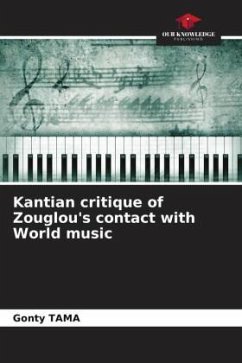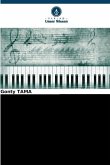In this book, the point of the critique of zouglou rhythm was to concede an archetypal function to Kantian aesthetics. Analysis of the traditional features of zouglou reveals that, according to Kant's aesthetic formalism, the universal destination of this music lies in the form of its works. This point of view enshrines the aesthetic and artistic plenitude of zouglou, but also seems to call for an examination of its communicative dimension. Communication in zouglou remains modelled on that of art in general: empirical communication and formal communication. According to Kant's thesis of the autonomy of art, only formal communication expresses the truth of the art object. It was thanks to the form of its works that the zouglou genre achieved world music status. Despite the influence of this new world of artistic expression characterized by advertising and its corollaries, a dialectical view of music presents World music as a moment of enrichment for zouglou. Moreover, the self-referential, neutral character of the advertising image is a sign of a return to the conclusions of Kantian aesthetics.
Bitte wählen Sie Ihr Anliegen aus.
Rechnungen
Retourenschein anfordern
Bestellstatus
Storno








